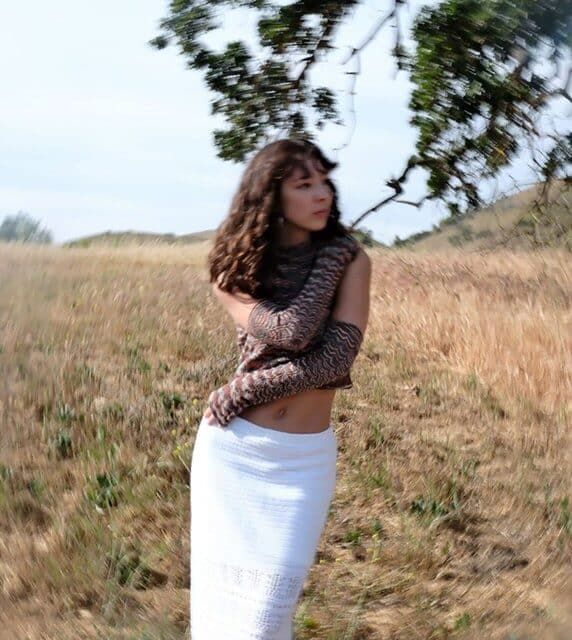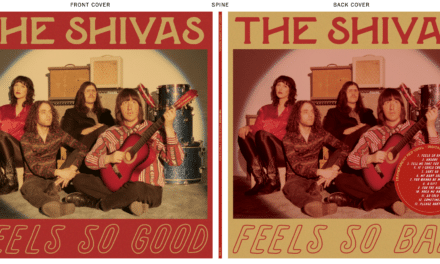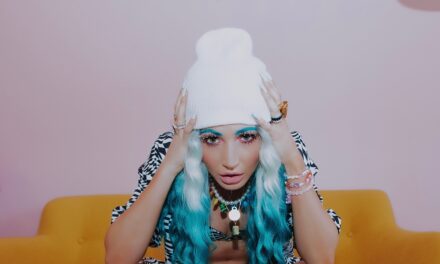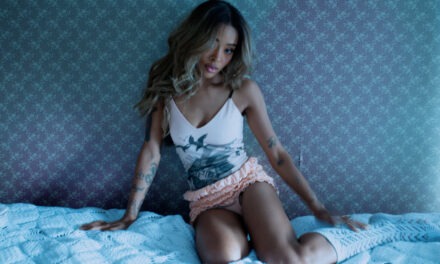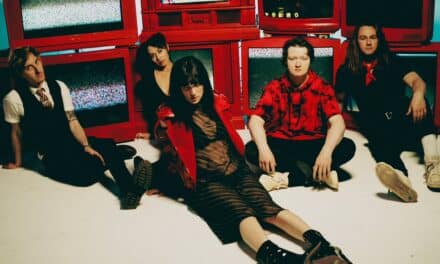For years, Aubrey Anderson-Emmons was best known for her role as Lily on Modern Family—a beloved character in one of TV’s most iconic sitcoms. But as she steps into adulthood, she’s making a decisive pivot away from the spotlight she grew up in and into one entirely of her own design. Enter: Frances Anderson.
Releasing her debut EP on August 8th under her new musical moniker, Frances Anderson is shedding old skin and embracing something rawer, moodier, and unmistakably her. Her first single, Telephones and Traffic, already out on all major platforms, sets the tone: introspective alt-pop with a gritty, indie edge—sonically delicate but emotionally grounded.
The name change is more than just a rebrand. It’s a reclamation. As a young Asian American woman coming of age in a post-sitcom world, Frances is no longer interested in being who people expect her to be. This project is about identity—about her voice, her sound, and her narrative. It’s music for late-night walks, quiet revolutions, and that moment when you finally stop asking for permission.
Stylistically, she’s moved away from the polished image most fans remember. There’s a new fashion language at play—part downtown thrift, part unfiltered vulnerability—that matches the sonic shift. It’s DIY but intentional. Unfiltered but precise. Just like the music.
Frances Anderson isn’t just trying something new. She’s becoming someone new—and inviting us to meet her there.
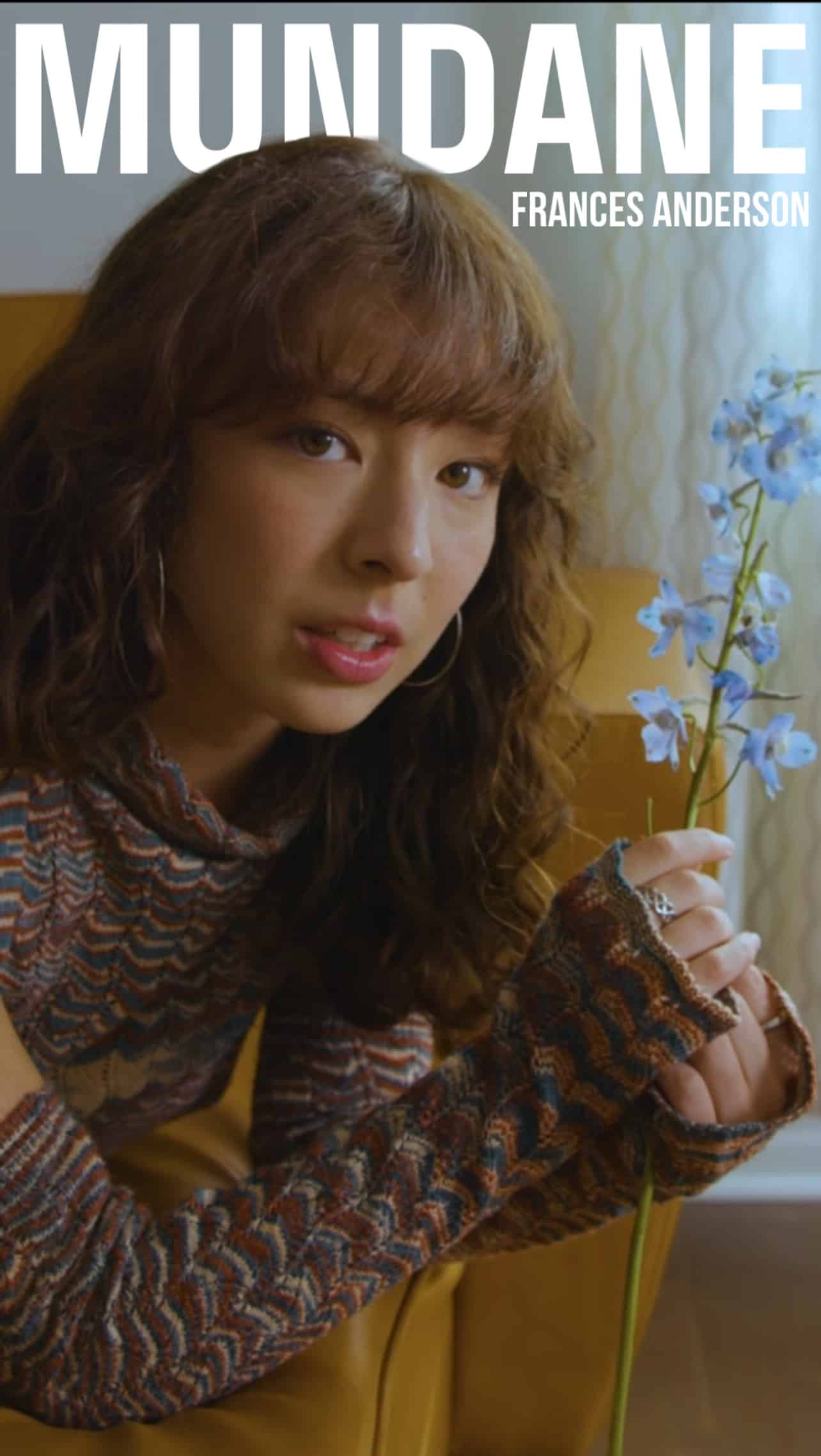
Frances Anderson: Nostalgia, Nuance, and the Sound of Processing
After spending much of her early life in front of the camera, Frances Anderson is stepping out from under the bright lights and into something more ambient, more raw, more real: her own music. With her upcoming EP Drown, Frances doesn’t reinvent herself — she revisits a younger version of who she already is. Equal parts vulnerable, poetic, and wistful, her work blends memories, moods, and melodies into something quietly magnetic.
We caught up with the LA-born artist to talk childhood, identity, growing up on set, and why being a little whimsical is always a good thing.
Let’s start with your name — Frances Anderson. Who is she to you?
Frances Anderson is me — but a little bit younger. I wouldn’t say she’s a whole new identity. She’s just a version of me that’s finally getting a chance to process the things I went through growing up — my childhood, the trauma, the in-between moments. Frances is actually my legal middle name, named after a family friend. So there’s nothing fabricated here — it’s just a more honest version of me showing up through music.
When did that honesty start to take shape? Like — what was the first time music really clicked?
The first song I ever wrote was in seventh grade on a ukulele. It was bad — I won’t lie. It was about a boy I had a crush on, and I wrote it with my best friend. But I picked up instruments during COVID, like a lot of people did. Someone gave me a guitar for free, and that was the real beginning.
I’ve been around music my whole life — my mom’s a musician. And in high school, I was part of the music program, dated a musician, all my friends were musicians. We’d go to house shows in LA and just play. It was a really supportive, creative space.
You started in a band — that communal, DIY energy really comes through. But you also have this whole other history in acting. What was that transition like — going from on-screen to on-stage?
I started acting at four and worked pretty consistently until I was twelve. It wasn’t a violent entrance into the industry — it was honestly fine. But when you’re a kid, you don’t really choose that path. You don’t have a lot of autonomy or self-discipline yet, and you’re surrounded by adults. That can be isolating. No kids my age on set. No friends.
Acting taught me professionalism, but music gave me community. Especially in theater and musical theater — those worlds felt a lot warmer than screen acting ever did. Musicians are just more open, in my experience.
What about toxicity — especially in LA? A lot of artists we speak to say music offered a kind of freedom they didn’t find in other creative fields. Did you experience that too?
Absolutely. There are certain toxicities in the acting world — though I wouldn’t say it defined my experience completely. But the internet? Way more toxic. I’ve felt more pressure and scrutiny online than I ever did on set. That’s a different kind of exposure.
Music, for me, is therapeutic. It’s the place I go to feel something real, without judgment. I can process in music in a way I can’t elsewhere.


Let’s talk about your EP. What’s the emotional core of Drown?
Nostalgia. Authenticity. A little whimsy. I’ve been told my music feels ethereal sometimes, and I don’t hate that. I like to wear long white skirts and just frolic — I’m okay with being whimsical. But beneath all of that, Drown is really me trying to tell the truth.
Is there a single track that anchors the project for you? A centerpiece or “queen bee” song?
It’s hard to pick just one because these songs came to me at different points in my life. The title track, “Drown,” is one of the earliest I wrote, and it’s the last one on the EP. It’s not about love — which is rare for me — it’s about life. The lyric “Just because I swim doesn’t mean I can’t drown” says a lot about where I was emotionally. It’s more poetic than some of my other songs. Not angry, but definitely heavier.
That one feels important.
You’re the first artist we’ve interviewed who said the public should decide what the “main” track is. That shows a certain maturity in how you relate to your audience. Has your past work in film/TV shaped that perspective?
Probably. I’ve been performing for so long — in front of people, in front of cameras — that I’m very aware I don’t own the interpretation of my work. Once it’s out there, it’s theirs. I don’t want to tell people what to feel. I just want to make space for them to feel it.
So who is this music for? Are you writing to the fans who already know you, or are you trying to meet a new audience where they are?
Both, maybe? I’ve been getting messages from people who know me from acting, and they’re surprised — but also really supportive. Some of them are finding things in my music that they didn’t expect, and I love that. I’m not trying to chase a specific crowd. I just hope whoever finds it, finds something meaningful in it.
And what’s next for you — more frolicking in Italy? More EPs?
[Laughs] Definitely more frolicking. But yes, I have a lot more music I want to make. This is only the beginning. Frances Anderson is still growing — and so am I.

